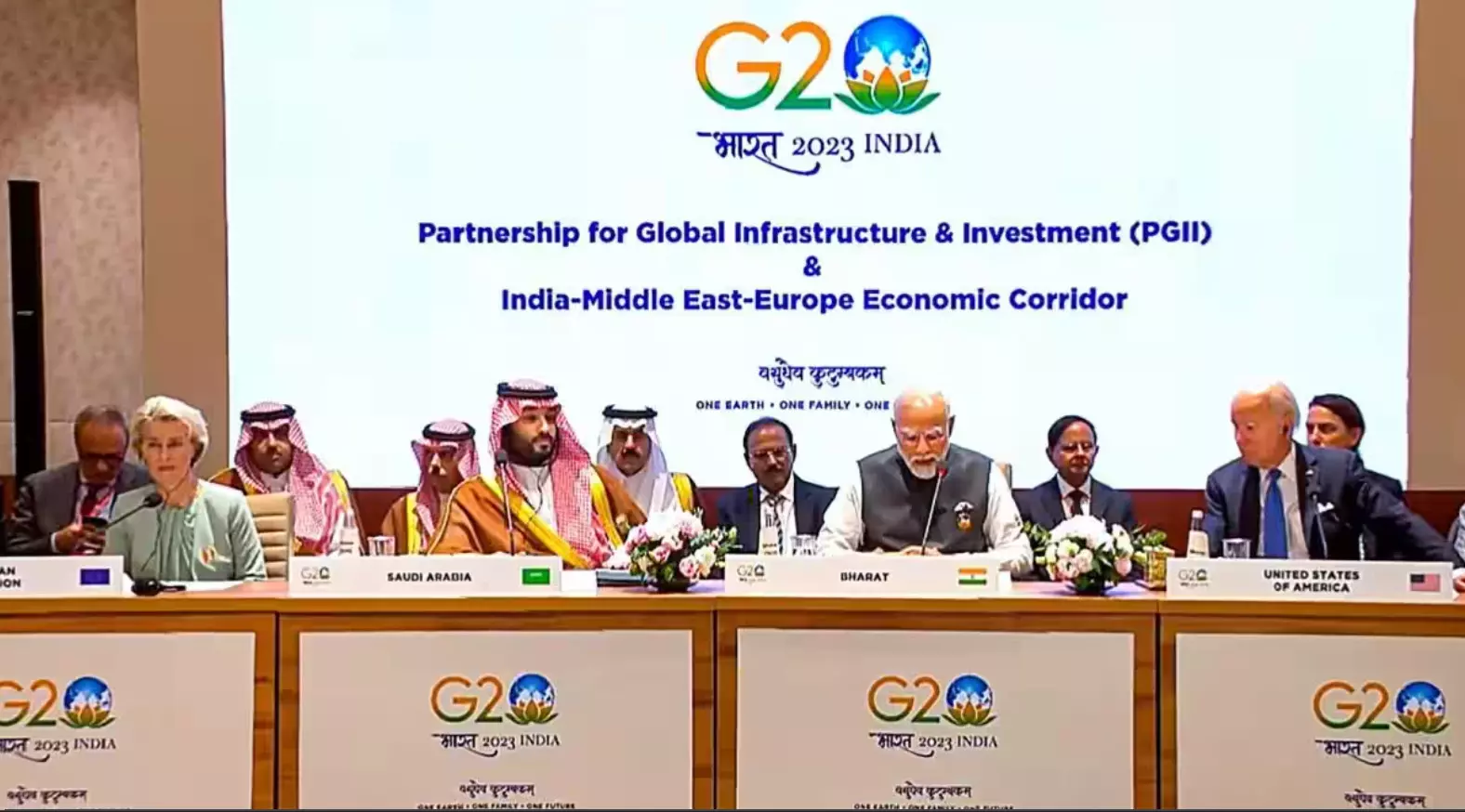Ambitious endeavour

The recent announcement of the India-Middle East-Europe Economic Corridor (IMEC) on the sidelines of the G20 Summit has sent ripples through the international community. This ambitious connectivity project holds the promise of transforming trade and cooperation across a vast region. However, as the details of the project remain undefined and challenges loom large, it may be pertinent to analyse the potential and pitfalls of the IMEC. The IMEC, in its envisioned form, is set to be a multinational rail and shipping project, comprising two critical corridors: the east corridor linking India to the Arabian Gulf and the northern corridor connecting the Arabian Gulf to Europe. Stretching through India, Saudi Arabia, the United Arab Emirates, Jordan, Israel, and the European Union, this sprawling corridor is expected to pave the way for economic growth, increased investment, and a surge in green energy production and export. Additionally, it aims to rejuvenate global supply chains, thus contributing significantly to the global economy. At first glance, the IMEC appears as a formidable endeavour with the potential to reshape the economic landscape of the regions it traverses. However, it is crucial to recognize that the devil lies in the details, and much remains to be clarified regarding the project's execution. In two months' time, representatives from the participating countries will convene to discuss financial commitments and protocols, offering a clearer view of the IMEC's feasibility. The success of this initiative hinges on the ability of these nations to bridge their differences and collaborate effectively on this colossal endeavour. One aspect that cannot be overlooked is the IMEC's perceived role as a counter to China's ambitious Belt and Road Initiative (BRI), although the announcement made no such mention. China's BRI, an ambitious infrastructure and economic development project, has been underway for over a decade, involving a vast network of projects with cooperation from over 150 countries and several international organisations. With financial commitments nearing USD 1 trillion, it stands as a grand endeavour in modern history. The BRI's Silk Road Economic Belt and 21st Century Maritime Silk Road components have given it a formidable look in terms of global trade and geopolitics. Comparatively, the IMEC, at this stage, seems like a modest endeavour when juxtaposed with the vast scope and scale of China's BRI. To present it as a viable alternative, the IMEC must traverse a path filled with uncertainties and challenges. It needs to muster the financial resources, political support, and transnational cooperation necessary to match China's ongoing effort. It's important to note that China's BRI has faced its fair share of challenges. Concerns related to debt burden have been raised, particularly in cases like Sri Lanka. Recently, Italy's Prime Minister expressed intentions to withdraw from the BRI. Moreover, environmental and geopolitical issues have shadowed China's ambitious initiative. The IMEC, as a project still in its infancy, could encounter similar challenges. The scale and scope of the endeavour are one aspect, but the real test will be its ability to navigate the intricate terrain of transnational cooperation. This involves addressing concerns about debt sustainability, ensuring transparency, and maintaining the balance between economic development and environmental protection. Additionally, geopolitical dynamics in the Middle East and Europe are complex, and any project of this magnitude will inevitably intersect with regional politics and rivalries. Effective diplomacy and negotiation will be imperative to overcome these hurdles. To sum up, while the IMEC is a vision with immense potential to transform the economic landscape of the regions it touches, it remains an uncharted territory with myriad challenges. The project's success will depend on the ability of participating countries to collaborate effectively, secure funding, and navigate the complex web of global politics and economics. Only time will reveal whether the IMEC can indeed serve as a credible alternative to China's BRI or if it will carve its unique path toward global economic integration.



